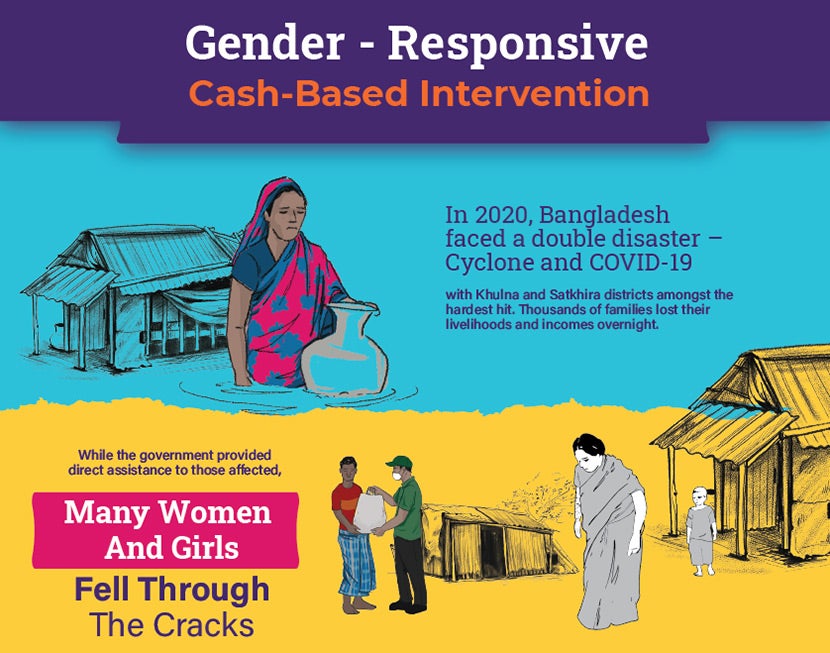
Infographics: Gender-Responsive Cash Based Intervention

In 2020, Bangladesh faced a double disaster Cyclone and COVID-19 in Khulna and Satkhira districts amongst the hardest hit. Thousands of families lost their livelihoods and incomes overnight. While the government provided direct assistance to those affected, many women and girls fell through the cracks. At the onset of the pandemic, UN Women expanded the group of NGOs that it worked with and created the Gender Monitoring Network (GMN), a network of 28 civil society organizations (CSOs) and women’s rights organizations. Organizations from the GMN supported UN Women in identifying vulnerable groups of women and girls, including transgender and sex workers, for unconditional cash assistance.
Beneficiaries consisted of marginalized and vulnerable women, including families with people with disabilities, female-headed households, transgender women, elderly women, GBV survivors, returnee migrant women workers, and sex workers. Money was transferred digitally through mobile banking to ensure that transactions are secure and transparent, while beneficiaries could remain safe at home. Apart from unconditional cash grants, UN Women also provided cash-for-work assistance to returnee women migrants for their work in mask production and emergency COVID-19 health and hygiene kits packing. In partnership with local CSOs, UN Women provided skills training to survivors of violence to help them become economically independent. This work has been made possible by supplementary funding from the Government of Japan.